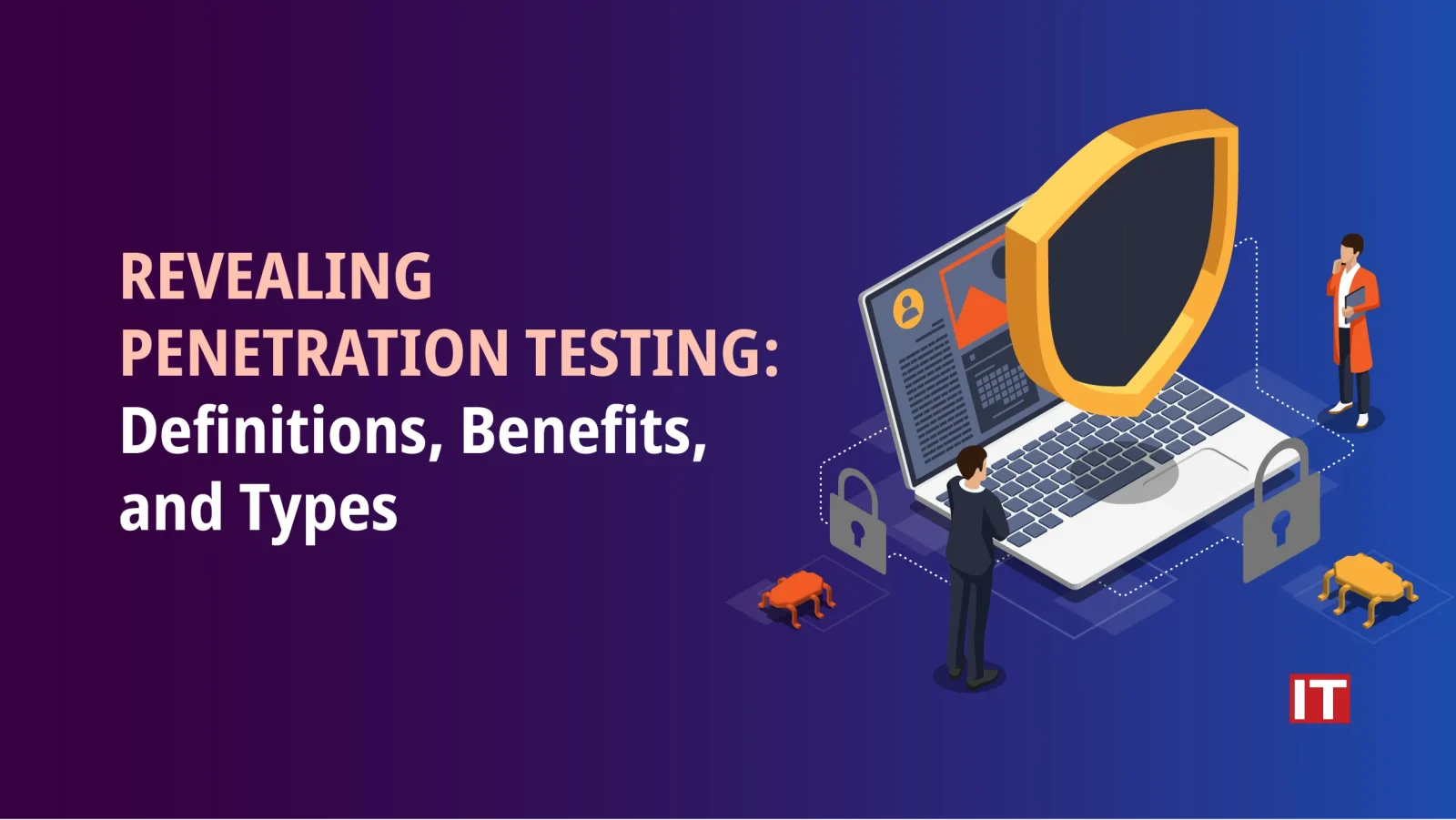Businesses are exposed to sophisticated cyber threats that can cripple the organizations’ operations. The security team must be on the constant prowl to detect the loopholes in their system to fix the issues before they are exploited by malicious actors. In this blog, let us have a look at the types, benefits, and definitions of penetration testing.
What is Penetration Testing?
Penetration testing, also referred to as pen testing, is a security strategy used by cybersecurity professionals to identify and exploit vulnerabilities in a computer system. The aim of such a simulated attack is to detect weak spots in the system that malicious actors can use as a vector to penetrate the system.
It is like hiring ethical hackers to execute sophisticated cyberattacks to compromise a system and gain access to the business network. If the hacker succeeds and enters the business network, the business will get actionable insights on how it can strengthen its security posture.
The Importance of Penetration Testing
Penetration testing assists an organization in identifying vulnerabilities and drawbacks in their systems that they were not aware of before. This approach helps businesses to fix the vulnerabilities as soon as they are detected. It is an effective way to prevent an attack before they even start.
Meeting Compliance
Penetration testing is an effective approach that assists enterprises in ensuring compliance with data protection and privacy requirements by identifying how data could be exposed. It is a cybersecurity defense mechanism that helps organizations to keep their data secure and private. It ensures that no unauthorized personnel has access to sensitive information. There are various data regulations that need businesses to have penetration testing.
Also Read: 9 Network Security Best Practices You Should Know in 2024
Who Is Responsible for Executing Penetration Testing?
 It’s ideal to have a penetration test conducted by someone with little or no prior knowledge of the system’s security. This lack of familiarity can help identify vulnerabilities that the developers, who created the system, might have overlooked. For this reason, external contractors are typically hired to perform these tests. These professionals, often known as ‘ethical hackers,’ are brought in to legally breach the system with the goal of enhancing its security.
It’s ideal to have a penetration test conducted by someone with little or no prior knowledge of the system’s security. This lack of familiarity can help identify vulnerabilities that the developers, who created the system, might have overlooked. For this reason, external contractors are typically hired to perform these tests. These professionals, often known as ‘ethical hackers,’ are brought in to legally breach the system with the goal of enhancing its security.
Many ethical hackers possess significant development experience, advanced degrees, and certifications in penetration testing. However, some of the most skilled ethical hackers are self-taught, including former criminal hackers who now use their knowledge to correct security weaknesses rather than exploit them. The ideal candidate for conducting a penetration test varies significantly based on the company and the specific type of test they wish to carry out.
What are the Types of Penetration Tests?
 1. Open-box Penetration Test
1. Open-box Penetration Test
The hackers will be offered some data beforehand about the target company’s security information in an open-box penetration test.
2. Closed-box Pen Test
It is also referred to as a single-blind test. In this type of penetration test, the hacker has zero background information other than the target company’s name.
3. Covert Penetration Testing
This type of pen testing is also referred to as double-blind testing. In such attach no one in the target company is aware of the occurrence of the penetration test. Even the IT and cybersecurity teams who will be the first responders to the attack do not have any clue about it. For these types of tests, the hackers need to have a scope and other information about the test in writing beforehand to prevent actions from law enforcement agencies.
4. External Pen Test
During an external penetration test, the ethical hacker targets the company’s outward-facing technology, like their website and external network servers. In some instances, the hacker isn’t permitted to enter the company’s premises, meaning the attack may be executed from a remote location or from a nearby vehicle.
5. Internal Pen Test
In an internal penetration test, the ethical hacker conducts the test within the company’s internal network. This type of test is valuable for assessing the potential damage a disgruntled employee could inflict from within the company’s firewall.
Benefits of Penetration Testing
There has been a significant surge in the types, volume, and sophistication of cyberattacks even before the introduction of artificial intelligence (AI). As AI has come into the mainstream, the number has immensely increased. Malicious actors are able to successfully breach software security, intensify their phishing vectors, and manipulate AI with malicious codes. Penetration testing is executed as a security measure to enhance the organization’s security measures in the event of a cyber attack. Here are a few advantages of penetration testing
● Detection and Remediation of Vulnerabilities in the System
The aim of the detection and remediation process is to detect the drawbacks in the organization’s business network infrastructure. Leveraging penetration tests helps cybersecurity professionals proactively look for loopholes by conducting a security scan, examining the codes, and reviewing the system configurations. These tests then suggest cybersecurity strategies to strengthen the security posture. To get a competitive edge in the industry, cybersecurity courses need to inculcate the latest technologies and develop the technical skills of the resources.
● Compliance With Regulatory Requirements
Many companies must adhere to specific government standards for security testing. To fulfill these requirements, they often utilize penetration testing. Compliance involves not only meeting legal obligations but also exceeding the minimum recommendations.
● Enhanced Consumer Trust
Going beyond regulatory compliance can enhance a company’s reputation and foster consumer trust. In the event of data breaches, customers may hesitate to continue using a company’s services. Penetration testing helps reassure customers that their data is securely protected.
Wrapping it up
Penetration testing is a crucial component of maintaining robust cybersecurity for any organization. By ensuring compliance with regulatory requirements and striving to exceed these standards, companies can protect their systems from potential threats and vulnerabilities.


































